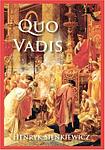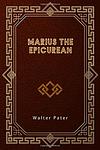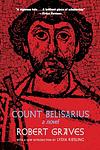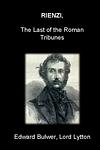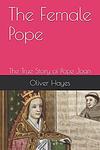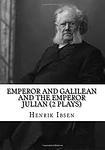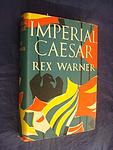The Greatest "Rome, Historical fiction" Books of All Time
Click to learn how this list is calculated.
This list represents a comprehensive and trusted collection of the greatest books. Developed through a specialized algorithm, it brings together 300 'best of' book lists to form a definitive guide to the world's most acclaimed books. For those interested in how these books are chosen, additional details can be found on the rankings page.
Genres
The category of "Rome" in books refers to literature that is set in ancient Rome or focuses on the history, culture, and society of the Roman Empire. These books may include historical fiction, biographies, memoirs, and academic works that explore the political, social, and economic aspects of Rome. The genre may also encompass stories of gladiators, emperors, soldiers, and other figures from Roman mythology and history. Overall, the category of "Rome" offers readers a glimpse into one of the most influential civilizations in human history.
Historical fiction is a genre of literature that combines fictional stories with real historical events, settings, and characters. These books often take place in a specific time period and are based on research and factual information, but also include imaginative elements to create a compelling narrative. Historical fiction allows readers to experience the past in a unique and engaging way, while also providing insight into the social, cultural, and political issues of the time.
Countries
Date Range
Reading Statistics
Click the button below to see how many of these books you've read!
Download
If you're interested in downloading this list as a CSV file for use in a spreadsheet application, you can easily do so by clicking the button below. Please note that to ensure a manageable file size and faster download, the CSV will include details for only the first 500 books.
Download-
1. I, Claudius by Robert Graves
This historical novel is a first-person narrative told from the perspective of the Roman Emperor Claudius, who was considered an unlikely ruler due to his physical ailments and perceived lack of intelligence. The story covers the reigns of Augustus, Tiberius, and Caligula before Claudius unexpectedly becomes emperor. The narrative provides a critical look at the corruption, violence, and political machinations of the Roman Empire, offering a unique perspective on history.
-
2. Memoirs of Hadrian by Marguerite Yourcenar
"Memoirs of Hadrian" is a historical novel that presents a fictional autobiography of the Roman Emperor Hadrian, who reigned from 117 to 138 AD. Narrated in the first person, the novel explores Hadrian's ascension to the throne, his administration, his love for the young Antinous, and his philosophical reflections on life and death. The narrative is framed as a letter to his successor, Marcus Aurelius, offering insights into the complexities of power, the nature of leadership, and the human condition.
-
3. Death of Virgil by Hermann Broch
The novel explores the final hours of the Roman poet Virgil, who, while on his deathbed, contemplates the value and impact of his life's work, particularly his unfinished epic, the Aeneid. The narrative is a complex, stream-of-consciousness meditation on art, life, and death, with Virgil wrestling with his desire to burn his epic and the emperor's command to preserve it. The book delves into themes of the meaning of human existence, the role of art in society, and the clash between the individual's inner world and the external world.
-
4. Quo Vadis by Henryk Sienkiewicz
Set in ancient Rome during the reign of Emperor Nero, "Quo Vadis" follows the love story of a young Christian woman Lygia and a Roman patrician, Marcus Vinicius. As their relationship blossoms, they must navigate the dangerous political climate of the time, marked by Nero's tyranny and the growing influence of Christianity. The novel provides a vivid depiction of the clash between pagan Rome and the early Christian church, culminating in the Great Fire of Rome and subsequent persecution of Christians.
-
5. The Thorn Birds by Colleen McCullough
"The Thorn Birds" is a sweeping family saga that spans three generations of the Cleary family, set against the backdrop of the Australian outback. It focuses on the forbidden love between the beautiful Meggie Cleary and the family's priest, Father Ralph de Bricassart. The novel explores themes of love, religion, and ambition, as Meggie and Ralph struggle with their feelings for each other and the choices they must make.
-
6. Marius the Epicurean by Walter Pater
"Marius the Epicurean" is a philosophical novel that explores the life of Marius, a young Roman, during the reign of Marcus Aurelius. The narrative follows Marius's intellectual and spiritual development as he navigates the complexities of Roman society, with its intricate blend of paganism and emerging Christianity. The protagonist grapples with existential questions and moral dilemmas, seeking to understand the nature of pleasure, the concept of duty, and the meaning of life. His journey culminates in his conversion to Christianity, symbolizing a shift from sensual pleasure to spiritual fulfillment.
-
7. The Ring And The Book by Robert Browning
The narrative poem unfolds a complex true crime story from 17th-century Rome, revolving around a gruesome murder case. It delves into the perspectives of different characters involved, including the murderer, the victim, the lawyers, and the Pope, each providing their own version of the events leading up to the crime. The poem's unique structure, comprising twelve books, allows the reader to explore the multifaceted nature of truth and justice, as the same story is retold with varying biases and interpretations, highlighting the subjectivity of human perception and the intricacies of legal and moral judgment.
-
8. Augustus by John Williams
"Augustus" is a historical novel that provides a comprehensive and vivid account of the life of Rome's first emperor, from his early years as a young and inexperienced politician, to his rise to power and his reign, which brought about the Pax Romana. The book presents a complex and humanized portrayal of Augustus, exploring his relationships, his philosophical reflections, his political strategies, and the challenges he faced in his personal and public life. The narrative is composed of fictional letters, memoirs, and other documents, providing a multi-faceted perspective on this pivotal figure and his era.
-
9. Il Piacere by Gabriele D'Annunzio
"Il Piacere" is a novel set in late 19th century Italy that explores the life of a wealthy and hedonistic aristocrat. The protagonist is caught in a constant pursuit of pleasure, indulging in luxurious parties, love affairs, and the arts, while struggling with ennui and a sense of emptiness. His life takes a turn when he falls in love with a woman who challenges his views and lifestyle. The novel delves into themes of decadence, hedonism, and the search for meaning in life.
-
10. Death in Rome by Wolfgang Koeppen
"Death in Rome" is a post-World War II novel that explores the lives of a German family, their friends, and associates during a reunion in Rome. Each character is representative of a different aspect of German society, and their interactions and experiences in the city serve as a commentary on the nation's struggle to come to terms with its recent past. The book also explores the themes of guilt, denial, and the lingering effects of war.
-
11. That Awful Mess On Via Merulana by Carlo Emilio Gadda
This novel is a complex and richly detailed exploration of a crime in 1920s Rome, where an investigation into a theft and a brutal murder in an apartment building on Via Merulana becomes a sprawling narrative that delves into the social, political, and cultural fabric of Italy. The detective in charge of the case navigates through a maze of clues, red herrings, and eccentric characters, revealing not just the underbelly of Roman society but also the inherent chaos and absurdity of life. The narrative is characterized by its linguistic inventiveness, with a mix of literary Italian, Roman dialect, and technical jargon, making it a challenging yet rewarding read that transcends the boundaries of the detective genre to offer a profound commentary on the human condition.
-
12. The Papess Joanne by Emmanuel Rhoides
The book is a historical novel that delves into the legend of Pope Joan, a woman who, according to the story, disguised herself as a man and rose through the ranks of the Catholic Church to become Pope in the 9th century. The narrative critically examines the socio-political and religious dynamics of the time, blending historical facts with fiction to explore themes of gender, power, and the construction of history. Through its controversial protagonist and detailed portrayal of medieval Europe, the novel challenges the traditional narratives of history and the church, offering readers a provocative and thought-provoking tale that questions the very foundation of widely accepted truths.
-
13. Count Belisarius by Robert Graves
This historical novel brings to life the Byzantine Empire through the eyes of its most celebrated general, Belisarius. Renowned for his loyalty and military genius, the protagonist navigates the treacherous waters of political intrigue, betrayal, and warfare in an attempt to serve his emperor while maintaining his own honor. Set against the backdrop of the 6th century, the narrative not only explores the complexities of Belisarius's military campaigns against the Persians, Vandals, and Goths but also delves into his personal life, highlighting his relationship with his wife Antonina and his dealings with the cunning Empress Theodora. Through its detailed portrayal of ancient warfare, political maneuvering, and the human condition, the novel offers a vivid reimagining of a pivotal period in history.
-
14. Julian by Gore Vidal
This historical novel is a first-person narrative told through the eyes of Roman Emperor Julian the Apostate, the last non-Christian ruler of the Roman Empire. The story is presented as a series of letters and diary entries detailing Julian's life from his childhood to his death, including his rise to power, his attempts to restore paganism in the empire, and his military campaigns. The book paints a complex portrait of Julian, exploring his philosophical beliefs, his relationships, and his inner struggles.
-
15. Memoirs Of A Gnostic Dwarf by David Madsen
This novel offers a vivid and provocative portrayal of the Vatican during the Renaissance, seen through the eyes of a dwarf who serves Pope Leo X. The narrative delves into the corruption, intrigue, and scandal that pervade the Holy See, presenting a stark contrast between the spiritual ideals of the Church and the worldly, often debauched behavior of its leaders. The dwarf, possessing a sharp intellect and a unique perspective, navigates this morally complex environment, exploring themes of faith, power, and the nature of truth. His journey is not only a physical one through the lavish and sometimes grotesque landscapes of the Vatican but also a spiritual and philosophical quest for understanding and redemption.
-
16. Leo Africanus by Amin Maalouf
This historical novel follows the life of a real-life Andalusian-born traveler of the 16th century, who is captured by Christian pirates and presented as a gift to the Pope. Renamed after the pontiff, he becomes a respected scholar and diplomat, navigating the complex cultural and religious divides of the Mediterranean world. Throughout his journeys, which take him from his birthplace in Granada to Fez, Timbuktu, Constantinople, and Rome, he witnesses the tumultuous events of his time, including the fall of Granada and the rise of the Ottoman Empire. His story is one of identity, belonging, and the universal quest for knowledge and understanding amidst a backdrop of conflict and change.
-
17. Rienzi by Edward Bulwer-Lytton
The novel chronicles the rise and fall of Cola di Rienzo, a charismatic 14th-century Roman who ascends from humble origins to become the city's Tribune, striving to restore Rome's ancient glory and enact political reforms through a popular uprising. Despite initial success in uniting the Roman populace and gaining power, the protagonist's idealistic ambitions are ultimately thwarted by the scheming of the nobility, the fickleness of the masses, and his own tragic flaws. The story serves as both a historical account of a significant period in Rome's post-imperial history and a cautionary tale about the complexities of leadership and the volatile nature of political fortune.
-
18. Pope Joan by Donna Cross
The novel is a historical fiction that tells the story of a young woman in the 9th century who, driven by her thirst for knowledge and desire for education, defies the societal norms of her time. Disguising herself as a man, she rises through the ranks of the church hierarchy, ultimately becoming Pope. Her journey is fraught with challenges and dangers, as she navigates a life of deception while striving to maintain her secret identity. The story explores themes of gender, religion, and power, as it weaves a tale of a remarkable figure who, according to legend, may have challenged the male-dominated history of the Papacy.
-
19. The Lost Painting by Jonathan Harr
"The Lost Painting" tells the story of a lost masterpiece by Italian Baroque artist Caravaggio, titled "The Taking of Christ." The book follows the journey of a young art historian, Francesca Cappelletti, as she sets out to uncover the painting's whereabouts. Along the way, she encounters a cast of characters including art dealers, art historians, and even a mafia boss. Through meticulous research and a bit of luck, Cappelletti finally locates the painting in a Dublin Jesuit house, where it had been hanging for centuries, unrecognized as a Caravaggio. The book is a captivating tale of art history, detective work, and the power of obsession.
-
20. Emperor And Galilean by Henrik Ibsen
"Emperor and Galilean" is a historical drama that centers on the life of the Roman Emperor Julian the Apostate, who reigned in the 4th century. The play explores Julian's internal conflict as he attempts to revive pagan worship in the face of the growing influence of Christianity. As Julian becomes increasingly disillusioned with Christian doctrine, he seeks to establish a new world order based on a synthesis of Greek philosophy and pagan gods. His quest for spiritual and political transformation leads him on a tragic journey, culminating in his ultimate failure and realization of the futility of his ambitions. The narrative delves into themes of power, faith, and the human struggle between the divine and earthly realms.
-
21. Cinna by Pierre Corneille
"Cinna" is a classic French tragedy set in ancient Rome, focusing on themes of clemency and tyranny. The play revolves around the titular character, a nobleman involved in a conspiracy to assassinate Emperor Augustus. As the plot unfolds, the conspirators grapple with their moral dilemmas and the consequences of their actions. The emperor, upon discovering the plot, faces his own internal struggle between his desire for justice and the virtue of forgiveness. The narrative explores the complexities of power, loyalty, and the human capacity for mercy, culminating in a surprising act of leniency that challenges the traditional expectations of retribution in tragedy.
-
22. Claudius The God by Robert Graves
"Claudius The God" is a historical novel that follows the life of Emperor Claudius, who unexpectedly rises to power in ancient Rome. Written as an autobiography, the book provides a unique perspective on the inner workings of the Roman Empire and the challenges faced by Claudius as he navigates political intrigue, assassination attempts, and the complexities of ruling a vast empire. With a blend of fact and fiction, the novel offers a vivid portrayal of Claudius' reign and the tumultuous era in which he lived.
-
23. Imperial Caesar by Rex Warner
"Imperial Caesar" is a historical novel set in ancient Rome, following the life of a young and ambitious Julius Caesar. The book vividly depicts Caesar's rise to power, his military conquests, and his transformation into a formidable leader. Through a captivating narrative, the author explores the political intrigue, power struggles, and personal sacrifices that shaped Caesar's journey, offering readers a compelling glimpse into the life of one of history's most influential figures.
-
24. The Devil's Advocate by Morris West
In "The Devil's Advocate," a young priest named Blaise Meredith is tasked with investigating the life of a recently deceased man in order to determine his eligibility for sainthood. As he delves deeper into the man's past, Blaise uncovers a complex web of secrets, scandals, and personal struggles. Wrestling with his own doubts and desires, Blaise must confront the dark side of human nature and grapple with the question of whether true goodness can exist in a world filled with temptation and sin.
Reading Statistics
Click the button below to see how many of these books you've read!
Download
If you're interested in downloading this list as a CSV file for use in a spreadsheet application, you can easily do so by clicking the button below. Please note that to ensure a manageable file size and faster download, the CSV will include details for only the first 500 books.
Download


